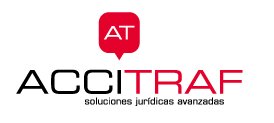Best Private Equity Lawyers in Salamanca
Share your needs with us, get contacted by law firms.
Free. Takes 2 min.
List of the best lawyers in Salamanca, Spain
About Private Equity Law in Salamanca, Spain
Private equity refers to investment funds, often structured as limited partnerships, that acquire stakes in private companies or take public companies private. In Salamanca, as in the wider Spanish context, private equity is an important part of the local and national economy, enabling business growth and restructuring through capital injection and management expertise. The legal framework governing private equity in Salamanca is primarily aligned with national legislation but must be tailored to the specific local market and regulatory environment. Salamanca's private equity market comprises local firms as well as national and international players looking to invest in the region's promising sectors, such as tourism, agriculture, technology, and education.
Why You May Need a Lawyer
Private equity transactions are complex and carry significant financial and legal risks. Examples of situations where legal advice is essential include:
- Negotiating and drafting investment agreements, shareholders agreements, and purchase or sale contracts.
- Ensuring compliance with Spanish and EU regulations regarding mergers, acquisitions, and capital investments.
- Conducting legal due diligence on target companies, including verification of ownership, liabilities, and compliance status.
- Structuring the transaction to optimize tax efficiency and protect investor interests.
- Resolving disputes between investors, founders, or other parties.
- Managing regulatory filings and notifications with relevant authorities.
- Advising on exit strategies, such as sales (trade sales), initial public offerings (IPOs), or recapitalizations.
Engaging a lawyer with local expertise in private equity can help you avoid costly mistakes and ensure your transactions are secure and legally sound.
Local Laws Overview
Private equity activities in Salamanca are primarily governed by Spanish national law, with relevant local adaptations and practices. Key legal components include:
- Corporate Law: The Spanish Companies Act (Ley de Sociedades de Capital) outlines the structure, operation, and dissolution procedures for companies, which are essential in private equity transactions.
- Financial Regulation: Private equity firms and funds must comply with regulations set by the Spanish Securities Market Commission (CNMV), including registration and reporting duties for certain types of funds.
- Merger and Acquisition Law: The legal processes for the acquisition and divestiture of companies involve contractual, competition, and regulatory obligations.
- Taxation: Spanish and local tax legislation significantly impacts the structuring of private equity deals, especially relating to capital gains, carried interest, and withholding taxes.
- Employment Law: In cases where private equity activity results in restructuring or layoffs, Spanish labor laws must be carefully observed.
- Local Regulations: Salamanca-specific norms, such as licensing or regional incentives, may also apply depending on the sector and type of investment.
Frequently Asked Questions
What is the typical structure of a private equity deal in Salamanca?
Most deals involve a private equity fund acquiring a significant, often controlling, stake in a company using a combination of equity and debt. The fund will negotiate terms of governance, management rights, and exit strategies with the existing owners.
Are there specific licenses required to operate a private equity fund in Salamanca?
Yes, private equity funds must comply with national regulatory requirements and may need to register with the CNMV. Businesses often require legal advice to ensure they satisfy all regulatory conditions.
How does due diligence work in private equity transactions?
Due diligence is a thorough investigation of the target company’s finances, legal standing, intellectual property, contracts, and compliance. Lawyers coordinate and conduct this process to uncover any potential risks or liabilities.
What are common legal risks in private equity investments?
Common legal risks include contractual breaches, hidden liabilities, compliance infringements, employment disputes, and regulatory challenges. Effective legal counsel is crucial to identifying and mitigating these risks.
Can foreign investors participate in private equity deals in Salamanca?
Generally, yes. Foreign investors are welcome, though they may face additional compliance requirements concerning foreign direct investment regulations and anti-money laundering procedures.
What tax implications should private equity investors be aware of?
Investors should consider capital gains tax, dividend taxation, and withholding taxes. The tax structure of the fund and its investors can significantly affect the net returns, making specialized tax advice important.
What happens if there is a dispute between investors or with the management?
Disputes are typically governed by the terms of shareholders’ agreements or investment contracts. These usually specify methods of dispute resolution, such as mediation, arbitration, or litigation under Spanish law.
How long does a typical private equity transaction take?
It varies, but most transactions take several months from initial negotiation to completion. The due diligence and regulatory approval stages can be significant factors in the timeline.
Are there any restrictions on how private equity investment capital can be used?
Investment capital is generally used for business expansion, acquisition, refinancing, or restructuring of the target company. Any sector-specific restrictions or regulatory requirements must be observed, particularly in sensitive industries.
How do private equity firms exit their investments in Salamanca?
Common exit routes include selling the company to strategic buyers, conducting a secondary buyout, or listing the company on a stock exchange. Legal strategies for exit planning are crucial to maximize returns and ensure regulatory compliance.
Additional Resources
If you are seeking more information or need to contact relevant authorities, consider the following resources:
- Spanish Securities Market Commission (CNMV): The national regulatory agency overseeing private equity and financial investments.
- Official Chamber of Commerce of Salamanca: Offers local business insight, networking, and regulatory guidance for investors and entrepreneurs.
- Spanish Private Equity & Venture Capital Association (ASCRI): Represents the interests of the private equity and venture capital sector in Spain and provides guidance and advocacy.
- Local Bar Associations: Provide directories of qualified lawyers specializing in private equity and related fields within Salamanca.
- Ministry of Economy and Digital Transformation: For policies, grants, and regulatory updates affecting private equity activity in Spain.
Next Steps
If you are considering a private equity transaction or investment in Salamanca, it is advisable to:
- Define your investment objectives and parameters, including amount, industry, and timeframe.
- Consult with an experienced lawyer specializing in private equity and company law. They will help you understand your legal obligations and opportunities.
- Request a preliminary legal assessment or meeting to discuss your situation, desired outcomes, and possible risks.
- Engage in thorough due diligence and have all transactional documents reviewed by your legal advisor before signing anything.
- If needed, contact relevant organizations or regulatory bodies for formal advice or to clarify compliance requirements.
Taking these proactive steps can help ensure your private equity ventures in Salamanca are successful, compliant, and well protected from legal complications.
Lawzana helps you find the best lawyers and law firms in Salamanca through a curated and pre-screened list of qualified legal professionals. Our platform offers rankings and detailed profiles of attorneys and law firms, allowing you to compare based on practice areas, including Private Equity, experience, and client feedback.
Each profile includes a description of the firm's areas of practice, client reviews, team members and partners, year of establishment, spoken languages, office locations, contact information, social media presence, and any published articles or resources. Most firms on our platform speak English and are experienced in both local and international legal matters.
Get a quote from top-rated law firms in Salamanca, Spain — quickly, securely, and without unnecessary hassle.
Disclaimer:
The information provided on this page is for general informational purposes only and does not constitute legal advice. While we strive to ensure the accuracy and relevance of the content, legal information may change over time, and interpretations of the law can vary. You should always consult with a qualified legal professional for advice specific to your situation.
We disclaim all liability for actions taken or not taken based on the content of this page. If you believe any information is incorrect or outdated, please contact us, and we will review and update it where appropriate.











